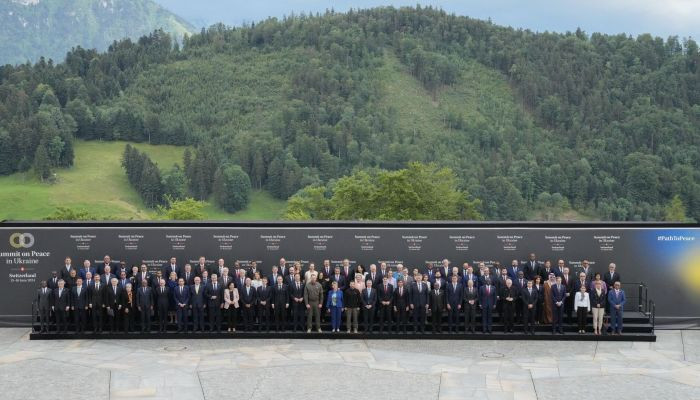Final document at Ukraine peace summit backed by 80 countries
 The final declaration of the Ukraine peace summit in Switzerland was approved by 80 of the 93 participating states at the close of the two-day event on Sunday. Countries that did not sign include six states from the G20 group of the world's most important economic powers: Brazil, Mexico, Saudi Arabia, South Africa, India and Indonesia, according to a list published by the Swiss hosts. Armenia, Bahrain, Thailand, Libya, the United Arab Emirates, Colombia and the Vatican also did not back the document released at the Bürgenstock mountain hotel resort near Lucerne. The draft of the final declaration took this into account and does not explicitly condemn Moscow for its actions. Instead, it recalls the Charter of the United Nations: "In particular, we reaffirm our commitment to refraining from the threat or use of force against the territorial integrity or political independence of any state," the text reads. The principles of sovereignty, independence, and territorial integrity of all states, including Ukraine, must be respected, it stated. The signatories also favour protecting the Ukrainian nuclear power plant in Zaporizhzhya, which is occupied by Russia, and agree that any threat to use nuclear weapons should be condemned. They also call for unhindered grain exports from Ukraine, which are particularly important for impoverished countries in Africa and other parts of the world. The declaration also advocates the exchange of prisoners of war and the return of children and other civilians abducted from Ukraine to Russia. Earlier in the day, Austrian Chancellor Karl Nehammer anticipated an incomplete backing of the document, while downplaying the significance of this. This was only because of its exact wording, according to Nehammer, rather than relecting a lack of support for efforts to broker peace in Ukraine. The basic common position would not be affected, he said: "That's why I'm not so worried if not everyone signs now." The question of the scope of a follow-up conference was also still difficult to answer. Before Russia also takes a seat at the negotiating table, another conference in a different format is conceivable, Nehammer added. "You really have to see it as a process," he said. According to Ukrainian Foreign Minister Dmytro Kuleba, the conference as such brought significant progress. Kuleba said that all countries that were not present were also aware of the impetus provided by the meeting. Overall, the process that has been initiated is very welcome, he said: "We are on the right track." Kuleba again stressed the need to support Ukraine militarily with the highest quality weapons possible. The stronger Ukraine is, the more willing Moscow will be to negotiate peace, according to him. The aim of the event was to initiate a peace process in which Russia would also be involved in the long term. Officials from Moscow were not invited on this occasion and did not express a wish to attend. |

Trump Warns Maduro to Leave Venezuela to “Save Himself and His Family”
10419:36
Iraq prepares to transfer Lukoil's stake in oil field to American company, US supports proposal
383Yesterday, 21:48
The EU stumbles to an imperfect solution for funding Ukraine
51407.12.2025, 23:54
Almost one in two people support the SVP initiative against Switzerland's 10 million population
50207.12.2025, 23:19
Israeli president pushes back against Trump’s pressure to pardon Netanyahu on corruption charges
55507.12.2025, 20:19
JAMA: Low-Carbohydrate Diet Helps Ease Schizophrenia Symptoms
53307.12.2025, 17:07
